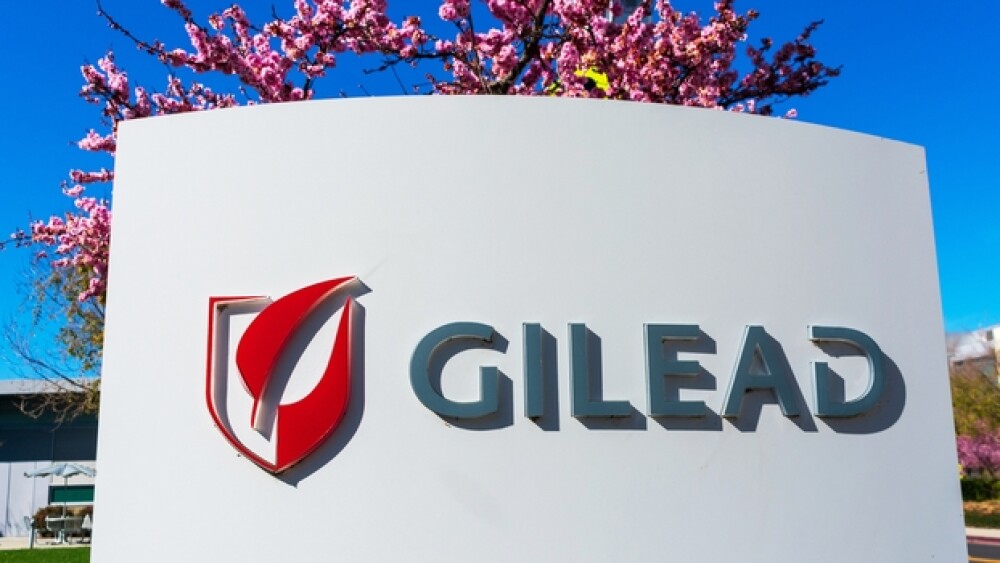The randomized, open-label, multicenter studies will enroll about 1,000 patients mostly in Asia, as well as in countries that have had high numbers of diagnosed cases. The trials are planned to start in March.
Michael Vi / Shutterstock
Gilead Sciences, based in Foster City, California, announced it will launch two Phase III clinical trials of its investigational antiviral drug remdesivir in adults diagnosed with COVID-19, the disease caused by the novel coronavirus.
The outbreak began in China in December and has since spread through much of the rest of the world, with most cases concentrated in Asia. The current number of confirmed cases worldwide is greater than 81,400 with a total death count of 2,770. The first cases of community spread of the virus—meaning not by someone who visited Asia recently—in the U.S. was reported yesterday.
Gilead’s trials will evaluate two dosing durations of the drug, which is given intravenously. The randomized, open-label, multicenter studies will enroll about 1,000 patients mostly in Asia, as well as in countries that have had high numbers of diagnosed cases. The trials are planned to start in March.
These trials are on top of two clinical trials in China’s Hubei province led by the China-Japan Friendship Hospital and a recently launched trial in the U.S. led by the National Institute of Allergy and Infectious Diseases (NIAID). Gilead donated the drug and provided scientific expertise for those trials. The China trial data is expected in April.
“Gilead’s primary focus is on rapidly determining the safety and efficacy of remdesivir as a potential treatment for COVID-19, and this complementary array of studies helps to give us a more expansive breadth of data globally on the drug’s profile in a short amount of time,” said Merdad Parsey, Gilead’s chief medical officer. “The speed with which remdesivir has moved into clinical development for this coronavirus reflects the pressing need for treatment options and the shared commitment of industry, governments, global health organizations and healthcare providers to respond to this public health threat with the highest urgency.”
Remdesivir is a nucleotide analog with broad-spectrum antiviral activity in in vitro studies and in in vivo studies in animals against Ebola, Marburg, MERS and SARS. MERS and SARS are both caused by coronaviruses that have at least some similarities to the coronavirus causing COVID-19.
These two trials will study the safety and efficacy of a five-day and a 10-day dosing regimen of remdesivir in patients with severe COVID-19. About 400 patients will be randomized 1:1 to receive remdesivir 200 mg on the first day, followed by 100 mg each day until day 5 or 10 as well as standard of care.
The second study will look at the safety and efficacy of a five-day and 10-day dosing strategy compared to standard of care. About 600 patients will be randomized 1:1:1 to receive 200 mg remdesivir on the first day followed by 100 mg with standard of care each day until day 5 or 10, compared to standard of care alone.
It should be emphasized how unusually fast the launch of these trials is, which underlines the urgency of the coronavirus epidemic. Gilead initially announced it was considering remdesivir for COVID-19 in late January. It was originally developed to treat Ebola but has shown some success in targeting coronaviruses.
Yesterday, the Trump Administration announced that Vice President Mike Pence will head the U.S. efforts to control the coronavirus outbreak. This was met by criticism, given Pence’s lack of medical credentials and what many view as a lack of success in handling HIV outbreaks when he was the governor of Indiana.
Another controversial that arose, besides mixed messages from public health authorities and President Trump, was a question yesterday to Health and Human Services Secretary Alex Azar on whether a coronavirus vaccine would be affordable. Azar’s answer was, essentially, no, they couldn’t guarantee it because of private sector involvement.
“We would want to ensure that we work to make it affordable, but we can’t control that price because we need the private sector to invest,” Azar told Congress. “Price controls won’t get us there.”
Although vaccines are currently being developed, including one by Moderna, widespread use of a vaccine would likely be at least a year away. Many experts in the field believe that drugs that are already in development, such as remdesivir, will likely be a more effective, faster options for dealing with the outbreak.
“The development of a vaccine is not going to prevent a pandemic here,” said Peter Marks, the director of the FDA’s Center for Biologics Evaluation and Research, at the SVB Leerink Global Healthcare Conference.
He added, reports STAT, “I do have to be honest that for the vaccines, the idea that there’s going to be a vaccine that will really be able to be used in a large patient population and a large clinical trial, in the very near future, as in the next few months, I think that’s just not likely.”





